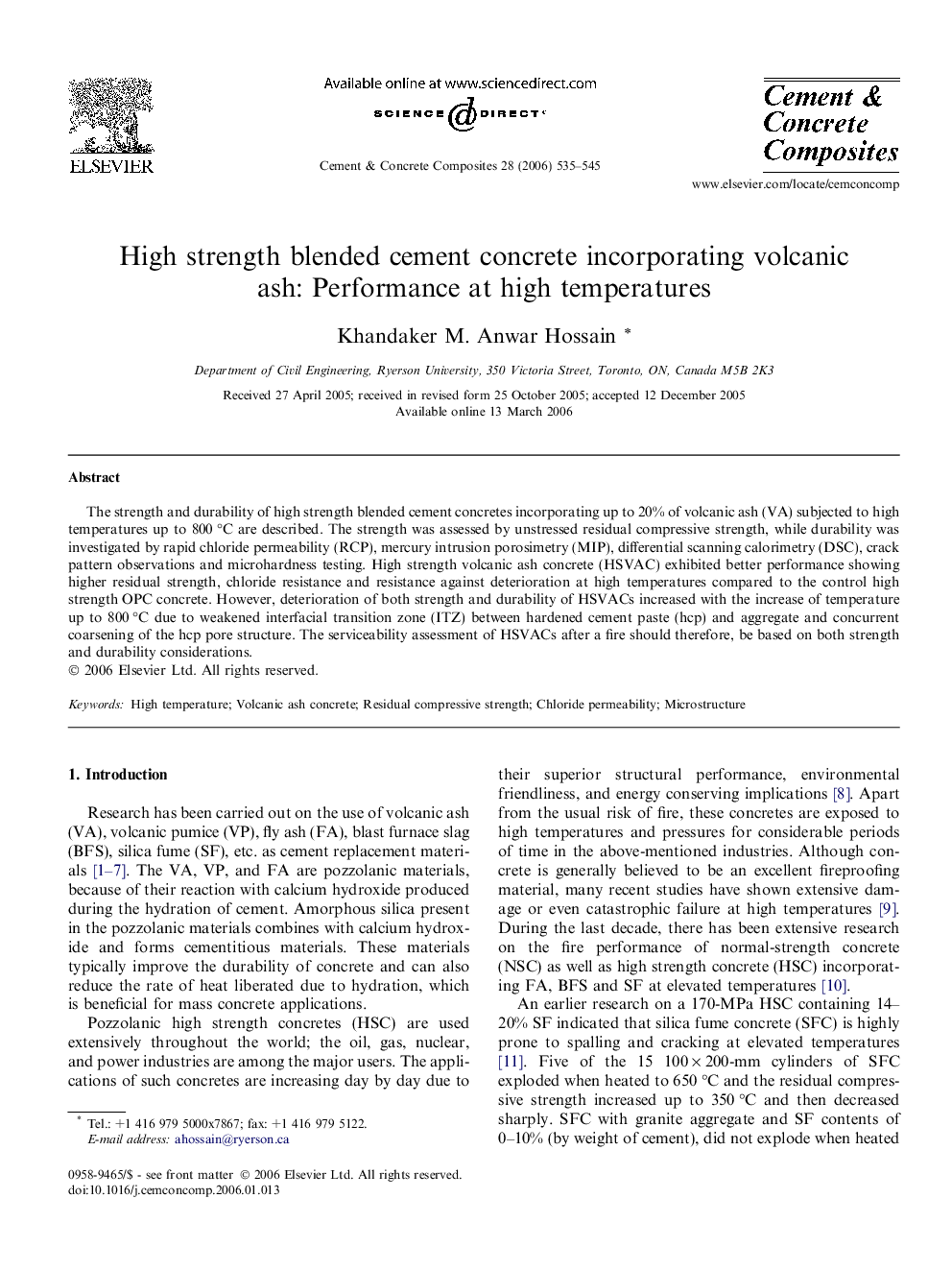| Article ID | Journal | Published Year | Pages | File Type |
|---|---|---|---|---|
| 1455808 | Cement and Concrete Composites | 2006 | 11 Pages |
The strength and durability of high strength blended cement concretes incorporating up to 20% of volcanic ash (VA) subjected to high temperatures up to 800 °C are described. The strength was assessed by unstressed residual compressive strength, while durability was investigated by rapid chloride permeability (RCP), mercury intrusion porosimetry (MIP), differential scanning calorimetry (DSC), crack pattern observations and microhardness testing. High strength volcanic ash concrete (HSVAC) exhibited better performance showing higher residual strength, chloride resistance and resistance against deterioration at high temperatures compared to the control high strength OPC concrete. However, deterioration of both strength and durability of HSVACs increased with the increase of temperature up to 800 °C due to weakened interfacial transition zone (ITZ) between hardened cement paste (hcp) and aggregate and concurrent coarsening of the hcp pore structure. The serviceability assessment of HSVACs after a fire should therefore, be based on both strength and durability considerations.
